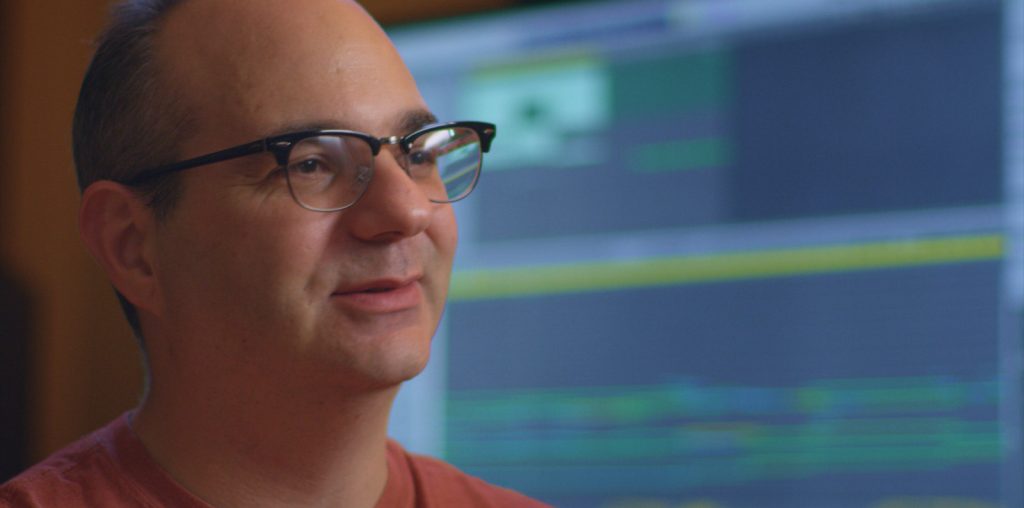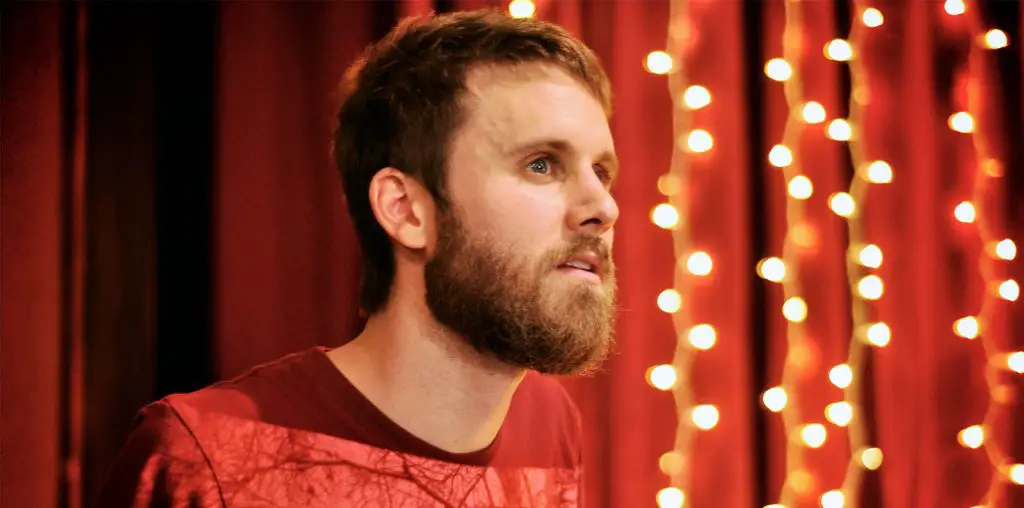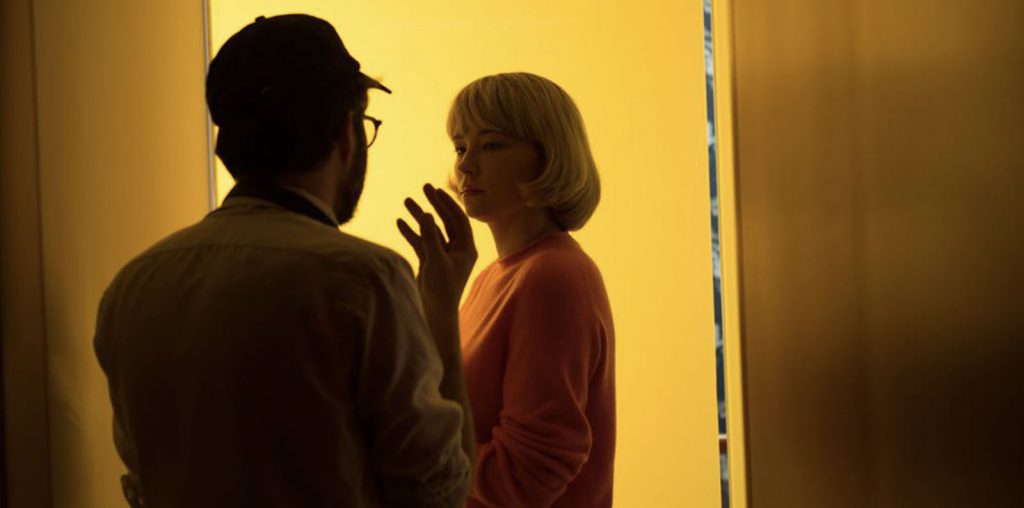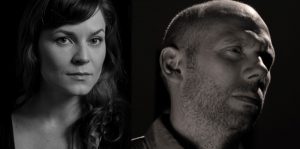
Had you had a chance to meet her? Did you meet her before?
Karijord: No. It’s because of COVID. They planned all the premieres, along with everything that was due for us. I mean, they had a super amazing lineup of promoting this film and premiers and everything, and everything’s just canceled. But we met “her”…we had her on the screen in our studios for three months every day.
How did you get to be part of the project? How far into the development of it did you guys come on board?
Ekstrand: I mean, they started contacting me because they have another composer that didn’t work out. They were in the editing, and the editing got pushed back. At the same time, I had many other projects pushed back by COVID. As I started working, I realized I couldn’t have done it by myself. Fortunately, Rebekka was finishing her current project. In the back of my head, I knew that Rebekka and I were supposed to do this work together. So I brought in Rebekka, and we started in June.
Karijord: The 3rd of June, I think. The 5th of June we had a meeting, and we were supposed to deliver at the beginning of August. It was very tight.
Just so I’m clear, you’re talking June of this year (2020)?
Ekstrand: Yeah, June of this year.
So how do you manage that? You’re talking June, and you had to deliver the final work in August. So that’s roughly two months.
Karijord: And we’re talking also writing the music, orchestrating it, recording it, mixing it. It was crazy. And also there are massive amounts of music. So it’s 80% of the film is music and all during a pandemic.
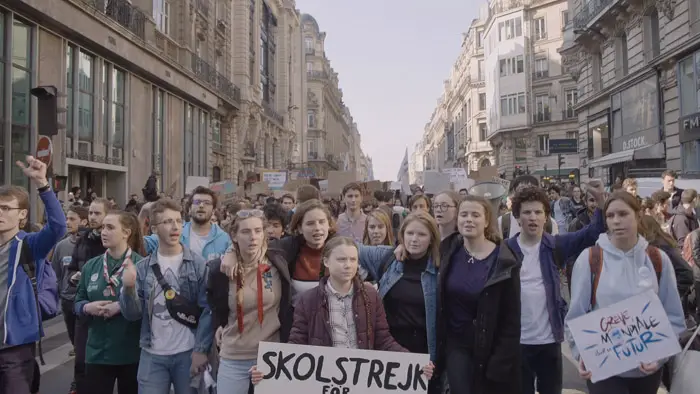
“…only two months…we’re talking also writing the music, orchestrating it, recording it, mixing it. It was crazy.”
I guess pressure is a great motivator. Was there a great deal of pressure to get it right, or how much does experience play into that? And then how much stress and craziness was going on at the same time?
A lot. It was pretty challenging, actually. Jon was also doing a Marvel film at the same time, and Marvel had all pushed everything. It all happened at once. And I dropped everything I had in my hand and said to my family, “Okay, this is one of those things I just got to do.” So I didn’t see my daughters for two months. Basically, I just worked, and it was super intense. And Jon said to me the other day because I was like, “I’m feeling weird right now.” He’s like, “You’re definitely in post-production depressed.” I’m like, “No. No. I’m not.” He’s like, “Yes, you are.” I told you what happened. It was so intense that I barely had time to think. And this whole pandemic thing, you lock it out, and you work, and then you wake up from it, and the film is out, and it’s like, “Whoa, what just happened?”
And I would imagine there was no time to enjoy the process. Is it a matter of doing the job versus the love of the job?
Karijord: No, we super enjoyed it. I mean, we had fun. We always have fun when we write music together.
Ekstrand: And working with musicians also. No, I think there were some really fun moments on the job. There was a lot of anxiety and a lot of pressure and stress. But I think the way that Rebekka and I worked together and how much fun we have when we write together.
Karijord: There were some real big challenges because they had edited for eight months with very strong temp music. They were very fond of the temp music. And that’s always a challenge to come into that. And when you then have little time… I actually did something that I’ve never done. I said to the director, “Okay, you got to leave us space.” You can’t come in and listen to it every third day because it’s not going to happen. And everyone was like, “There’s no time. How are we going to check?” I’m like, “You can’t check. You have to leave us space, or there’s not going to be a score.”
Ekstrand: They have to trust us. They have to trust something good will come. They can’t micromanage to love the music.
I imagine with the amount of time you had to do it, and there is panic on their end or uncertainty and that level of, “Okay, we hired them, we like what they do, we just have to let them do their work, or we’re going to meddle too much into it” and cause friction that way.
Karijord: Yeah. There’s a lot of opinions and big players involved. So it was definitely a lot of nerves from many sides in this project then. I remember we talked about that when we started. There was a lot of commotion and opinions, and tension going on with this project because of the stress. And I remember talking about it with Jon, but he was like, “Okay, let’s just focus on Greta now, let’s just focus on this kid.” They came in, and we looked at the sequence that we really got touched with all these kids, the viral sequence to the Fridays for Future piece, and we both teared up and like, “Okay, there it is. Let’s do this.”
You’re working in the same field. What is the relationship between the two of you like, and how do you manage working together and resolving conflicts?
Karijord: There’s no conflict. There are conflicts with other people, but we’re like the bad cop and good cop, and we change cops. It’s a fantastic work relationship. We both have worked with different people, which is by far one of the easiest, organic, clear ones that I’ve had. We come from very different backgrounds. And I think that’s really a super strength, and it’s very transparent and very with the heart on the sleeve.
